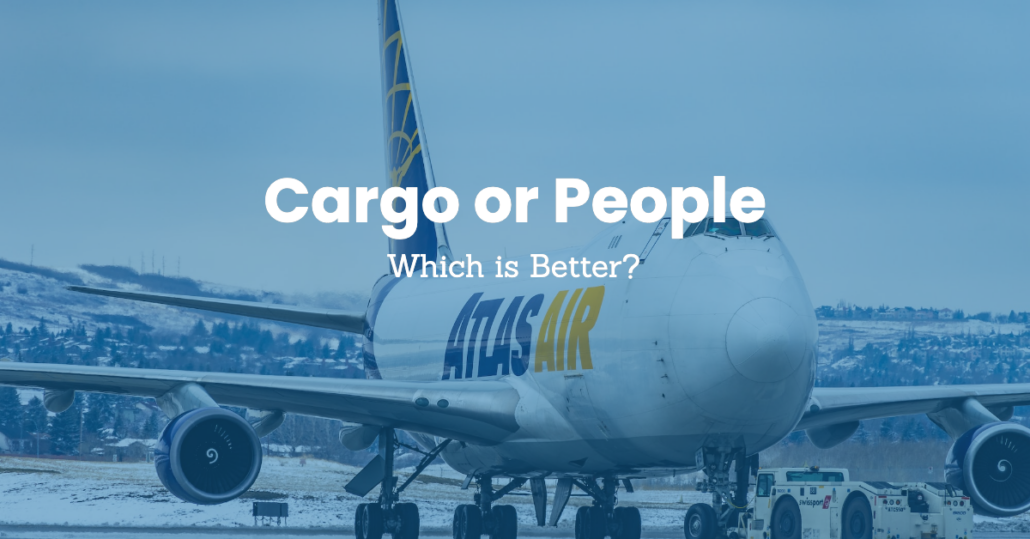Choosing a career path as a pilot involves a series of crucial decisions.
Among these is the choice between becoming a cargo pilot and an airline pilot.
These two roles, though both within the aviation industry, have distinct advantages and disadvantages.
These differences span across compensation, job security, job satisfaction, work schedule, commuting, and living conditions. Let’s delve into the specifics:
Compensation: About Equal
Cargo Pilot: Typically, cargo pilots earn a competitive salary, though it often varies with the size of the cargo carrier and the pilot’s experience. On average, cargo pilots in the United States earn a median salary of about $102,000 as of 2021, according to the U.S. Bureau of Labor Statistics. However, pilots for major cargo carriers such as FedEx or UPS can earn well over $500,000 annually, especially with overtime.
Airline Pilot: Airline pilots usually earn a higher base salary than cargo pilots, with the median salary around $160,970 as of 2021. However, this largely depends on the airline’s size, the type of aircraft flown, and the pilot’s seniority.
It’s worth noting that airline pilots can also supplement their income with per diems, which are additional funds allocated for meals and incidentals during layovers.
As a Captain of a wide body aircraft, you can expect to earn north of $400,000.
Job Security: Advantage to Cargo
Cargo Pilot: Cargo pilots enjoy a level of job security due to the constant global demand for goods. The cargo industry is generally less sensitive to economic downturns than the passenger industry, which makes it a more stable choice.
Airline Pilot: Airline pilots face a greater threat to job security due to market fluctuations and economic conditions that directly impact the tourism and travel industry. However, senior pilots with established airlines enjoy relatively stable positions, though economic downturns can still result in layoffs.
Job Satisfaction:
About Equal
Cargo Pilot: Cargo pilots often report high levels of job satisfaction due to less passenger interaction, which allows for more focus on flying. There’s less worry about customer satisfaction and more emphasis on ensuring that cargo is transported safely and efficiently.
Airline Pilot: While dealing with passengers can be challenging, many airline pilots find it rewarding. They often enjoy interacting with people, visiting different locations, and having the ability to affect passenger experiences positively. However, dealing with difficult passengers or delays can be stressful.
Work Schedule: Advantages For Each
Cargo Pilot: Cargo pilots often have more irregular schedules as cargo flights typically occur during the night when air traffic is less dense. This could lead to unconventional sleep schedules, which could affect work-life balance.
However, there is usually a predictable pattern, which allows for planning personal time.
Airline Pilot: Airline pilots also have irregular schedules, but they’re more likely to have overnight layovers in various cities. This provides an opportunity to explore different locations.
However, they’re also expected to work on weekends, holidays, and night shifts.
Commuting and Living Conditions: Advantages to Each
Cargo Pilot: Cargo pilots usually operate out of a few main hubs, which may require them to relocate or commute long distances to their base. However, the nature of the job allows them to return to their base more often.
If the airline you work for favors offers a schedule of 2 weeks on and 2 weeks off, if you don’t live in base, you will have just two (paid) commuting days per month…and they carrier will very likely cover your hotel as well; not to mention fly you to your base in business class if it is more than 4-5 hours from home.
Airline Pilot: Airline pilots may have more flexibility in choosing their base, depending on the airline’s route network. However, the nature of the job might involve more time away from home.
The solution to this is to live in case. If you do, you can significantly increase your quality of life as an airline pilot.
Major Cargo Carriers in the USA
1. FedEx Express
2. United Parcel Service (UPS)
3. Atlas Air
4. Polar Air Cargo
5. ABX Air
Job Prospects
Cargo Pilot: The job prospects for cargo pilots are promising, given the rise of e-commerce and global trade. According to the International Air Transport Association (IATA), air cargo demand continues to increase, which would subsequently lead to an increased demand for cargo pilots.
Airline Pilot: For airline pilots, the job outlook is a bit more cyclical and dependent on economic conditions. However, the long-term prospects remain positive.
The Boeing Pilot & Technician Outlook 2021-2040 projects the need for 763,000 new pilots globally by 2040, reflecting the expected growth in the airline industry.
Conclusion
Choosing between being a cargo pilot and an airline pilot largely depends on personal preferences, career goals, and lifestyle.
Both careers offer the chance to fly and see the world from an entirely different perspective. Each has its own unique set of challenges and rewards, so it’s important to consider your own preferences and priorities when making a decision.

